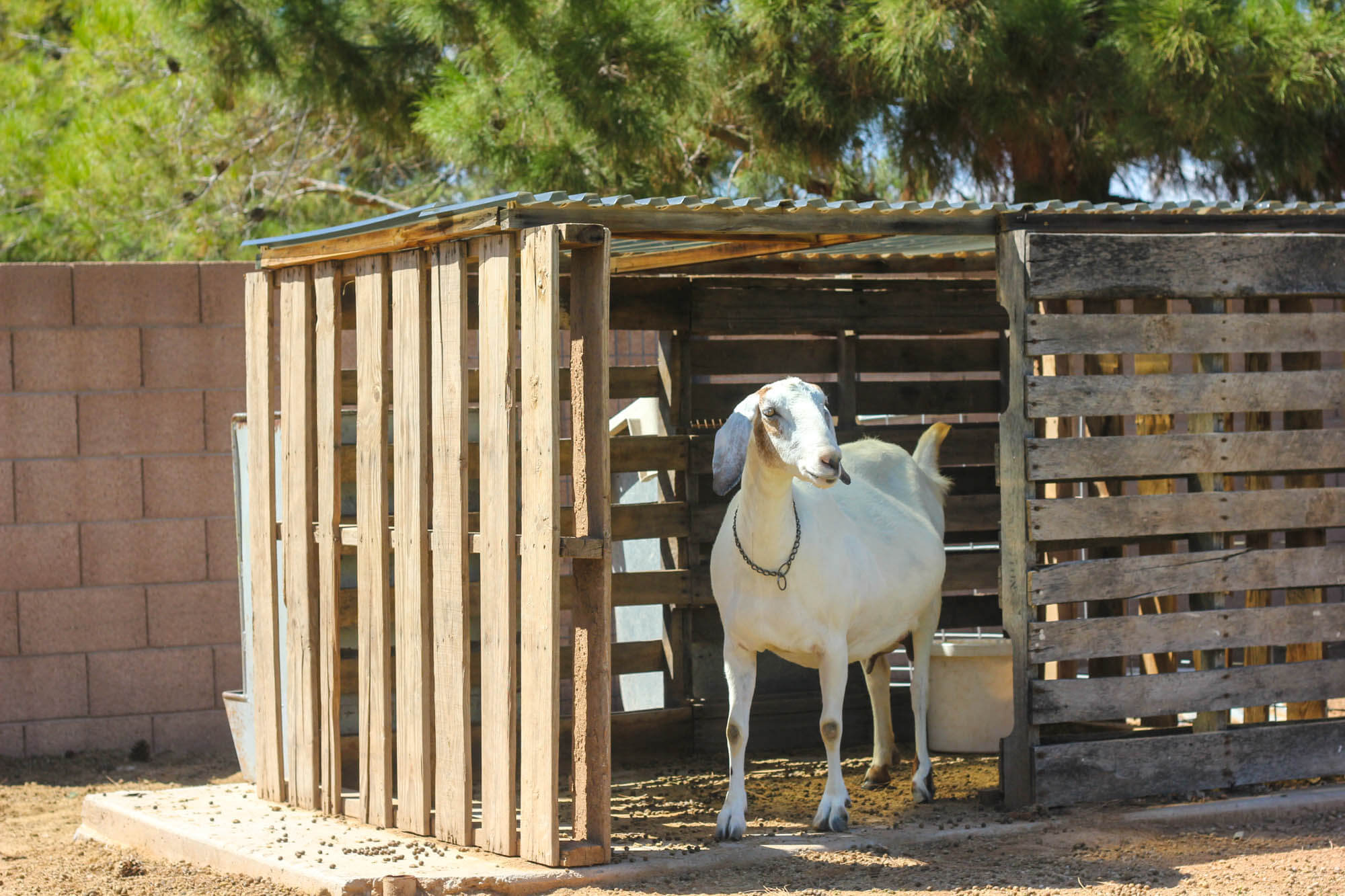The Nigerian Dwarf goat is an excellent choice for the first time farmer or someone who wants low maintenance farm animals. They do well in Texas and just need a few accommodations to survive the four seasons. These goats are very docile and can be very friendly if socialized when they are young. Here are some tips to follow if you want to raise Nigerian Dwarf Goats in Texas.
Feed & Grazing. Goats are notorious for eating everything! They prefer to forage and thrive when they have abundant grass and weeds. You will want to make sure there is nothing toxic or dangerous they have access to. We rotate our herd of goats around various parts of our property and they eat the grass down to about half an inch. No lawn mower required! During the summer months we supplement their diet with coastal hay and small amounts of sweet goat feed. Heads up, goats are very food motivated and can fight over scarce amounts of food just like a pack of dogs. It’s best to have multiple troughs or bowls spread out to feed from.

Veterinarian Care. Goats are fairly hardy and don’t require much care. When you first acquire some goats and whenever any babies are born, you will want to vaccinate them. In South Texas we can have a vet come out to do a wellness check and administer vaccines for a few hundred dollars. After the first year or two you may want to do as much of the work as you can yourself. Be prepared to dehorn your baby goats, sterilize the boys, trim the hooves occasionally and administer vaccines. With a large herd you will likely encounter some sickness and taking in feces to test at your local vet is often all that is needed to get an oral antibiotic. Be prepared to spend some cash if this is something that you don’t want to handle yourself.
Pregnancy. Baby dwarf goats are adorable! They are a staple within our petting zoo on our farm. We keep a few intact males and keep them separate from the herd most of the year. When we decide to breed we mix the males in with the herd and remove any young females that we don’t want to give birth. After about 5 months the moms will go into labor. There is not much for you to do other than help clean off the delivered babies but most of the time you wake up to find baby goats running around. The mom’s do everything themselves! On occasion, the mom’s reject the baby goats and you may need to bottle feed the babies until they are no longer dependent on milk. Our Nigerian Dwarf goats almost always give birth to 2-3 babies, with two being the most common by far.

Shelter. Texas summer’s can be rough. It is important to provide shade and plenty of water. Our goats are still pretty active in the summer and don’t seem too bothered but they often spend shorter amounts of time out in the pasture and more time laying around in the shade. The winter months can be concerning, especially for new born babies. You will want to have a roof and walls to stop any chilling winds. We have a large insulated chicken coop with heat lamps that we move our more vulnerable goats into when it drops below freezing. Luckily for us that doesn’t happen often in South Texas. Goats like to be high up and we recommend some wood pallets or piles of straw to insulate them from the cold ground. Goats love to climb on structures and get onto roofs so build it sturdy!
Fencing. Nigerian Dwarf Goats love to forage and will test your fence frequently to see if they can get beyond. I would avoid some cattle fencing and barbed wire fences because the young goats can squeeze through. We have found that Horse & Goat fencing works pretty well. Anything with 4” or smaller holes. Make sure to drive your posts deep and support your corners and gate posts. Lastly, we recommend that you get a farm dog or donkey to provide some protection or deterrent to predators that may want to come onto your property. Dwarf Goats themselves can’t fight off much.
